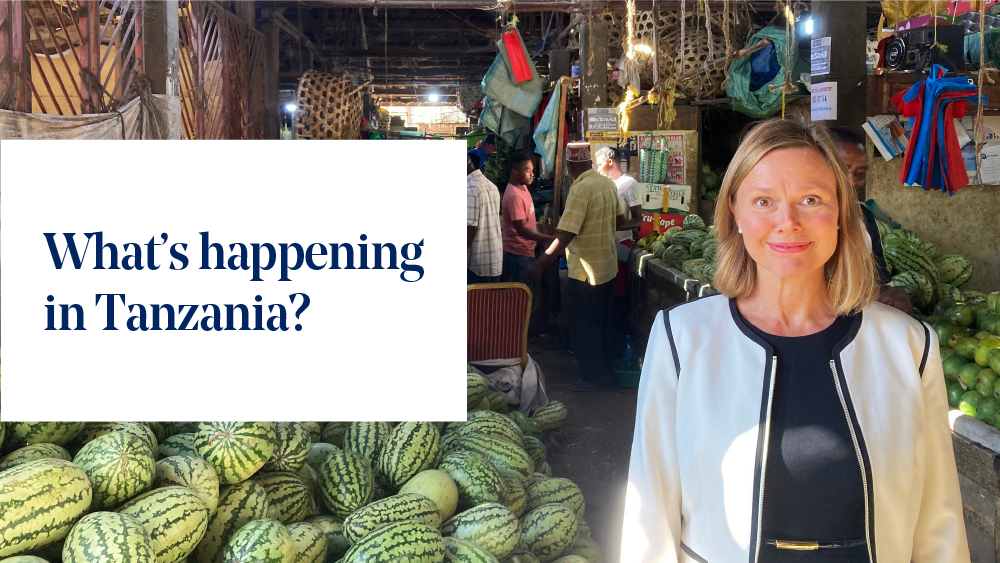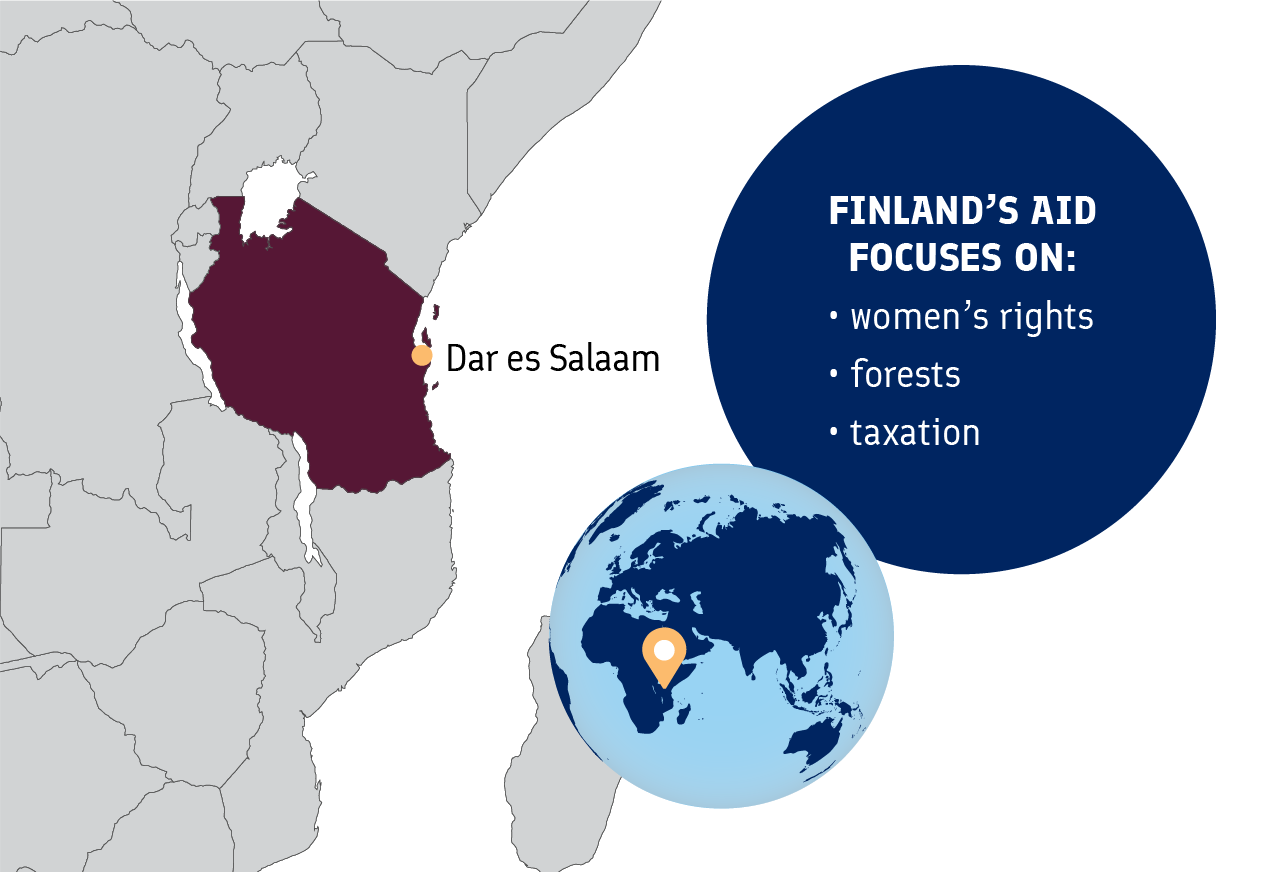Tanzania is searching for new direction
The atmosphere in Tanzania has become more open with the current president. There is a lot of talk about problems with women’s rights, for example, and this makes it easier to promote these rights, according to Finland’s Ambassador to Tanzania Teresa Zitting.

How would you describe the current situation and the biggest challenges in Tanzania?
It is easy to sense the positive mood in the country. President Samia Suluhu Hassan, who took office less than two years ago, has sparked a great deal of expectations, and Tanzanians want to attract both trade and investment to their country. However, the business environment is still tough. Tanzania would also like to intensify collaboration with other countries in the region. It is seeking to deepen its relations with Asia, too.
One positive development is that civil society, the opposition and the media have more room to operate. However, there has been no U-turn: the freedom of assembly is still being restricted and the media are showing signs of practising self-censorship. Violence against women, female genital mutilation and child marriages are still major problems. However, people are talking about women’s rights and about breaking taboos, and this is a step in the right direction.
The greatest challenge facing Tanzania is population growth. A recent census shows that there are now 61.7 million Tanzanians. If this growth rate continues, there will be 151 million Tanzanians by 2050. This means that massive investment is needed in education and healthcare, for example, which are already in poor state. The shortage of jobs will become even worse. There are already so many young people that Tanzania needs 800,000 news jobs every year. The growing population affects the environment, too. Fire wood and charcoal are the choice of fuel in 85% of households, which means that trees are being felled at a growing rate and there is a real risk that this process will only accelerate.
How is Finland supporting Tanzania?
Finland and Tanzania share a long history of cooperation, and there are very different kinds of partnerships between our countries. The current development cooperation country programme for Tanzania focuses on three themes: sustainable use of forests, women’s rights, and development of taxation. The promotion of the status of women is an area where Finland is among Tanzania’s most important partners. The budget for the country programme is EUR 14 million. We are also supporting local civil society to help them promote women’s rights and livelihoods of persons with disabilities.
The cooperation has produced good results. Tanzanian women are more involved in political decision-making, and forests are being protected and managed in sustainable ways that help people earn a living.
In addition, many Finnish bodies are working directly with Tanzanians. Finnish civil society organisations and their local partners are working together to improve teacher training, climate change adaptation and the status of children, young people and people with disabilities. The development financier Finnfund is active in the forestry sector, and the Finnish Meteorological Institute is helping its Tanzanian counterpart to develop better weather services. In addition, Finnish higher education institutions are collaborating with local universities, and Finnish companies are active in such sectors as education, sports, crafts and tourism.
How do you see the future of Tanzania?
Tanzania has vast amounts of natural resources, and it has both the opportunity and the desire to become more self-sufficient in food supply. The country has lots of minerals, such as gold, copper and graphite, and both fossil fuels and renewable energy sources. It gets fish from the Indian Ocean, and it has vast areas of forest that could give people a living. By using these natural resources prudently and sustainably Tanzania could earn a lot of money. Besides, the country could become a bigger player in the region. However, there is a risk that population growth will eat away at these opportunities.
What has uplifted you personally in Tanzania and what can we learn from the locals?
I started in Tanzania early this autumn, and already in these few months, I have come to admire the locals’ cheerful but calm conduct. Tanzanians are highly considerate people, and in this, they are a fine example to us all.
Tanzania’s nature is incredibly beautiful both on land, at sea and in the forest. It is easy to understand why the cradle of humankind is hereabouts.

In this series of articles, Finland’s ambassadors tell news from countries that are key partners of Finland’s development cooperation.
Text: Milma Kettunen